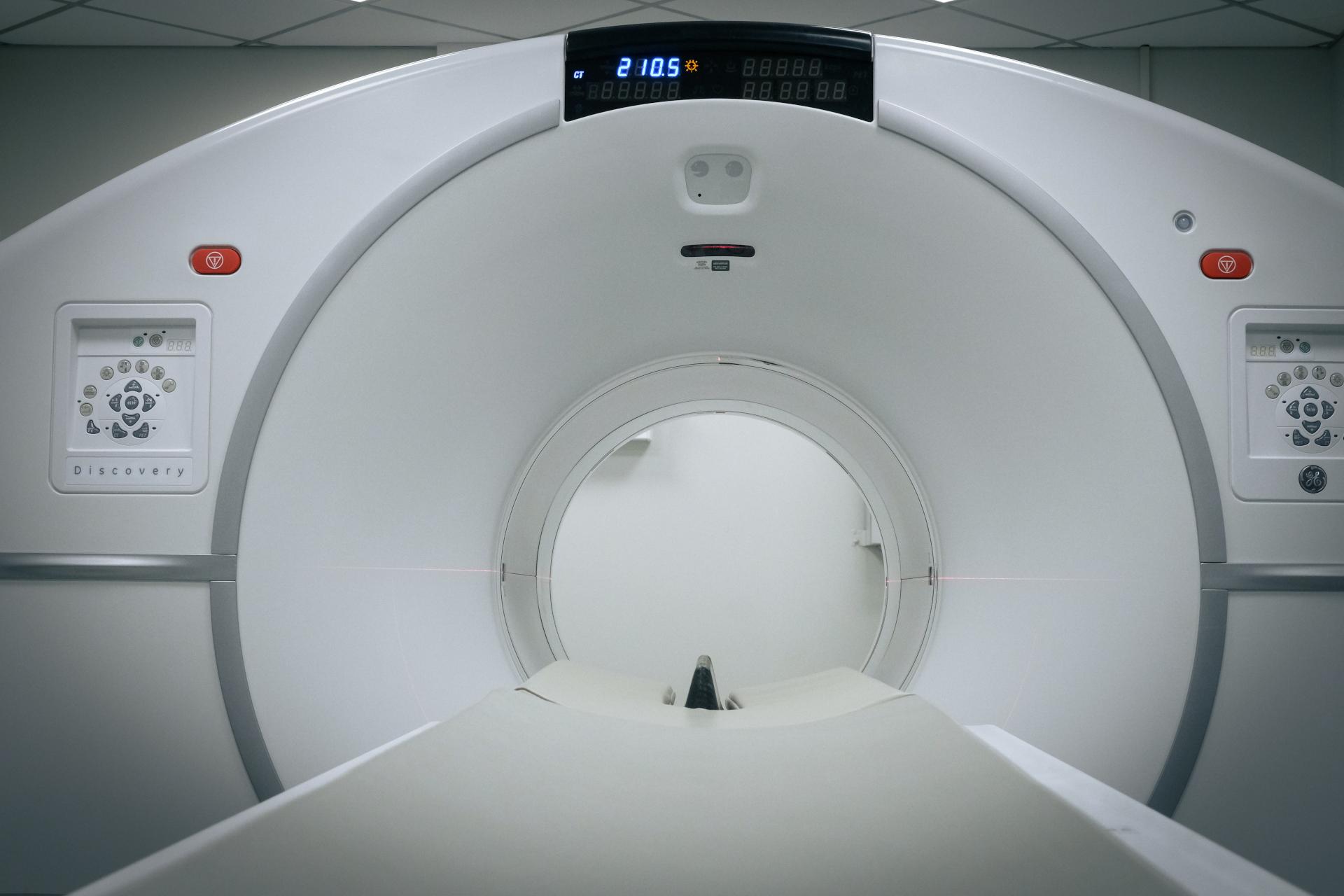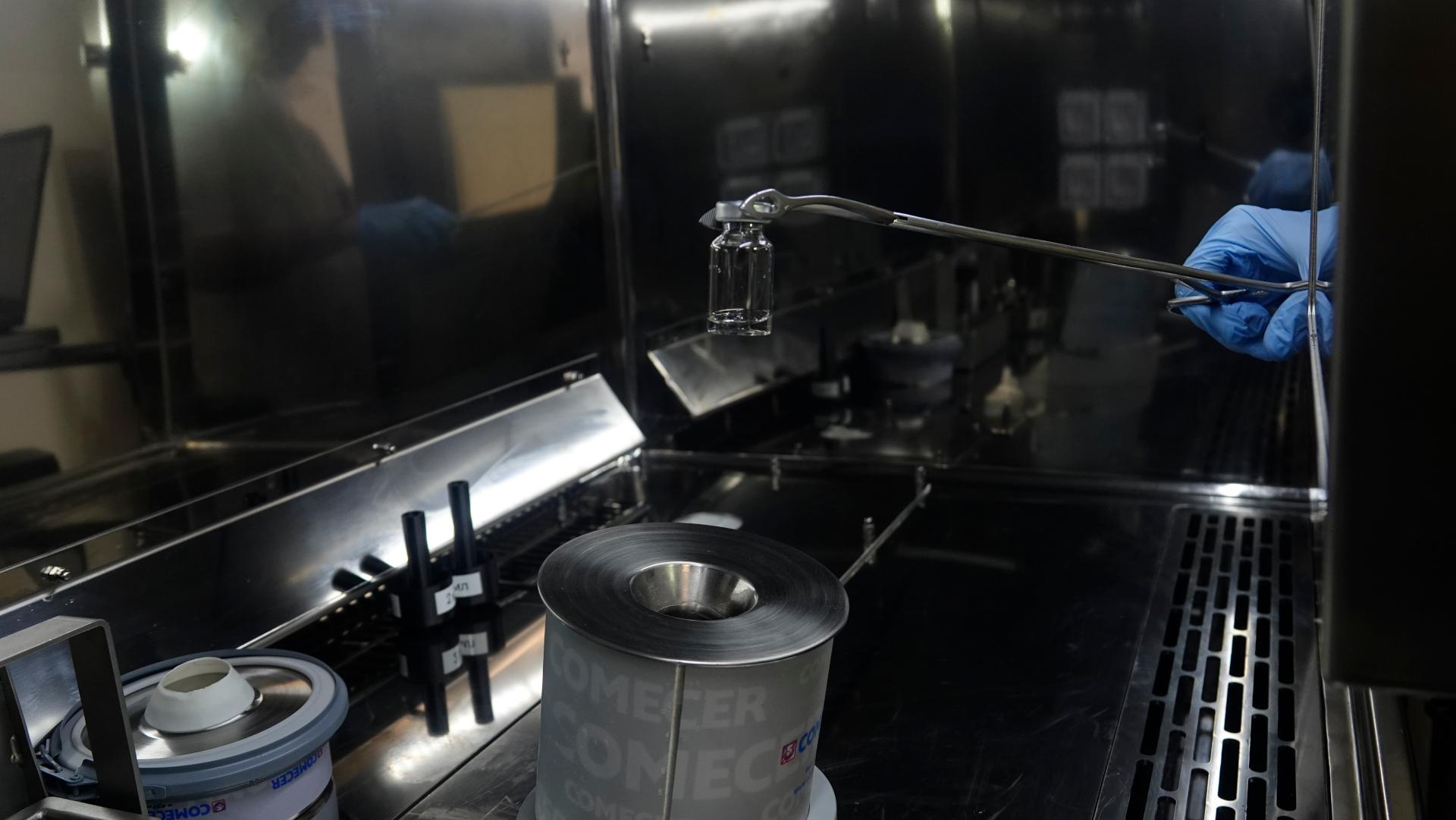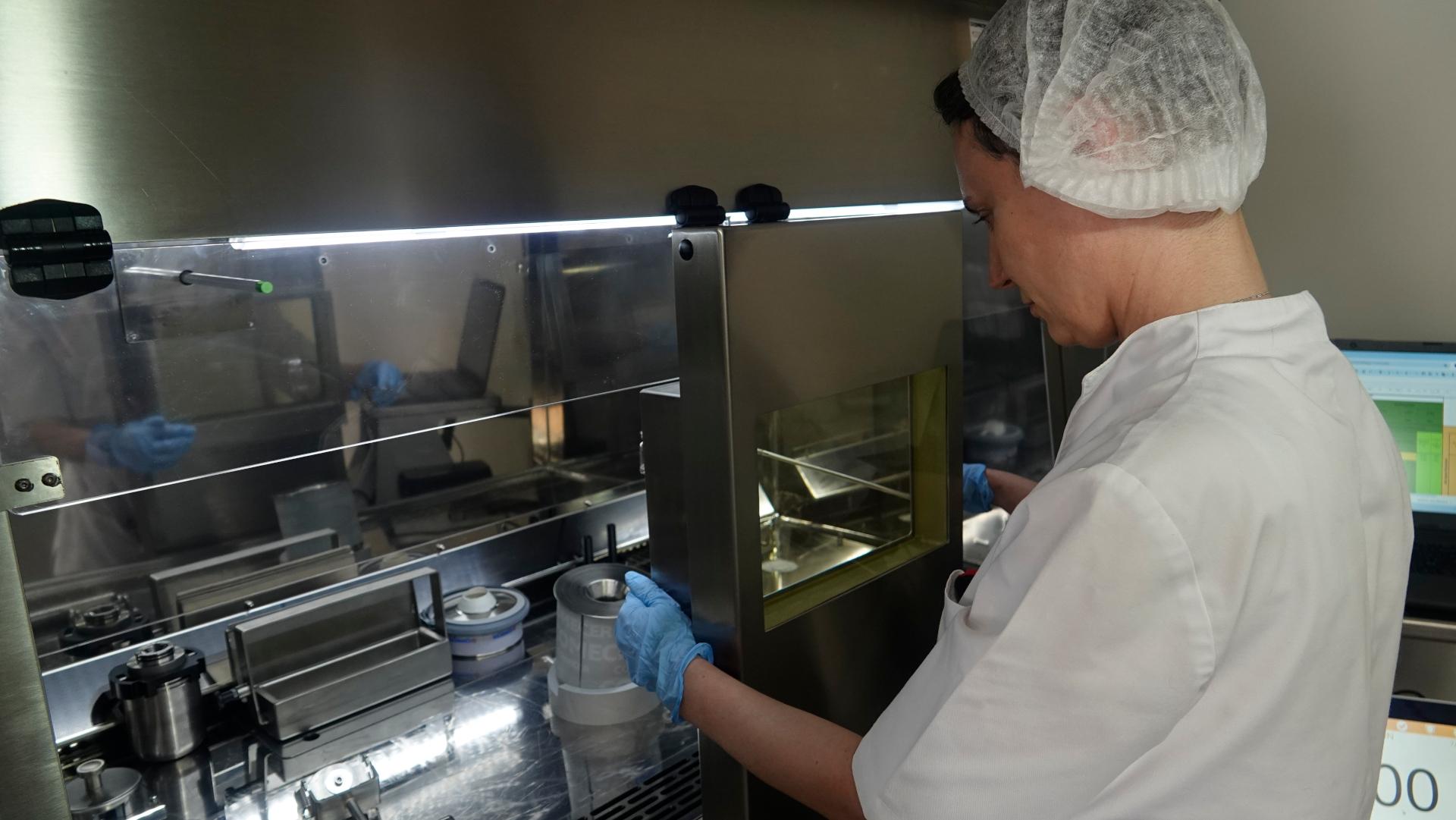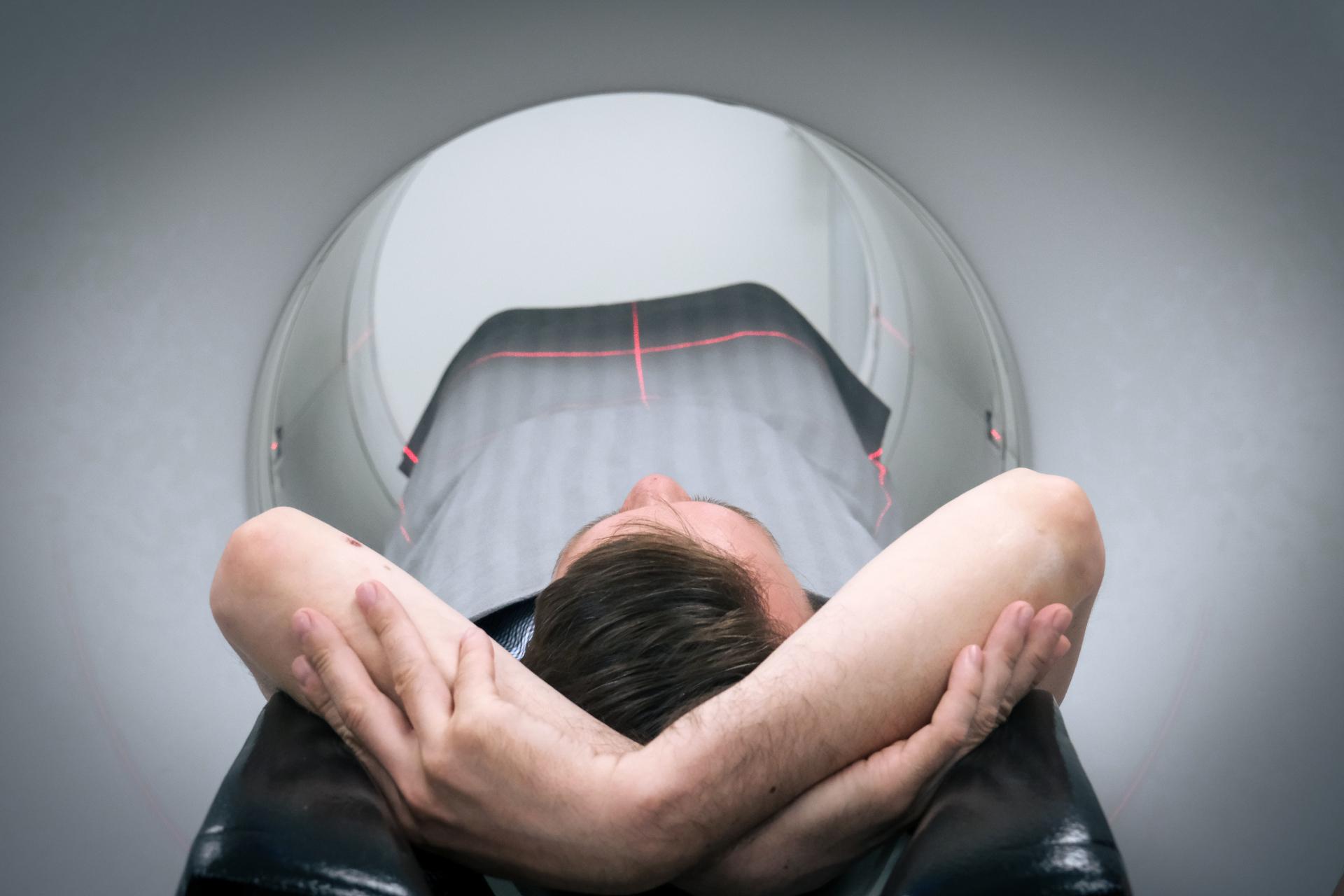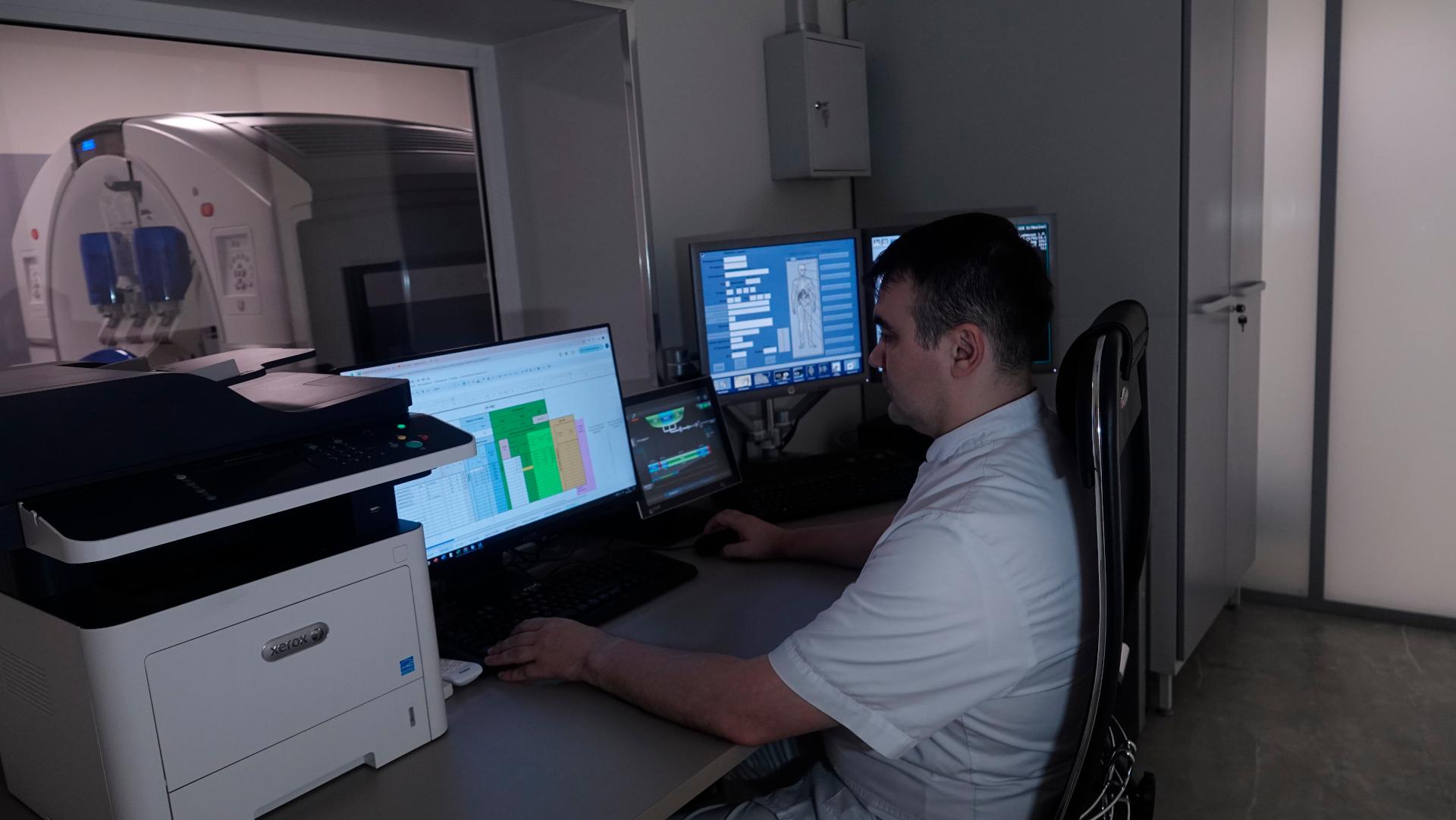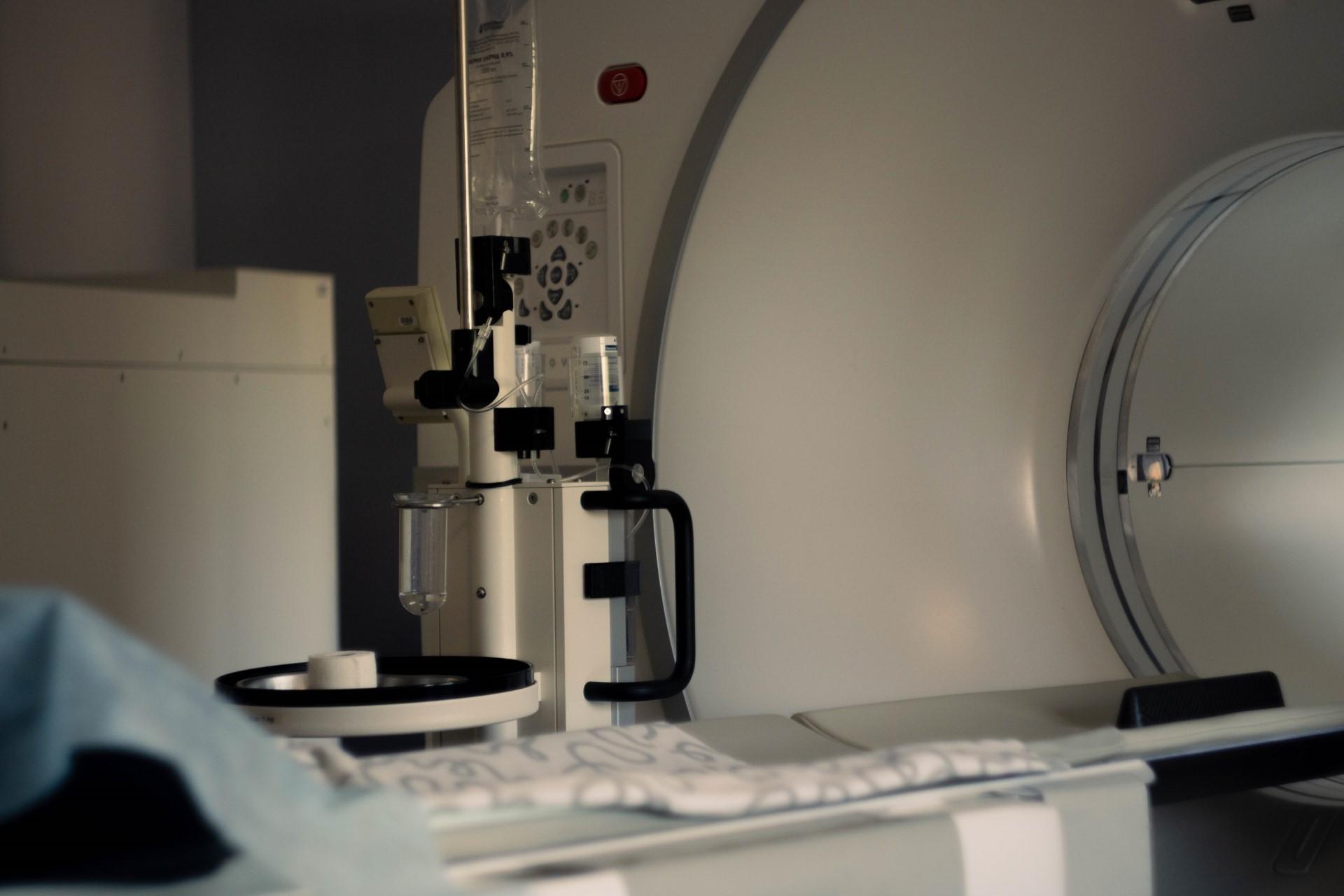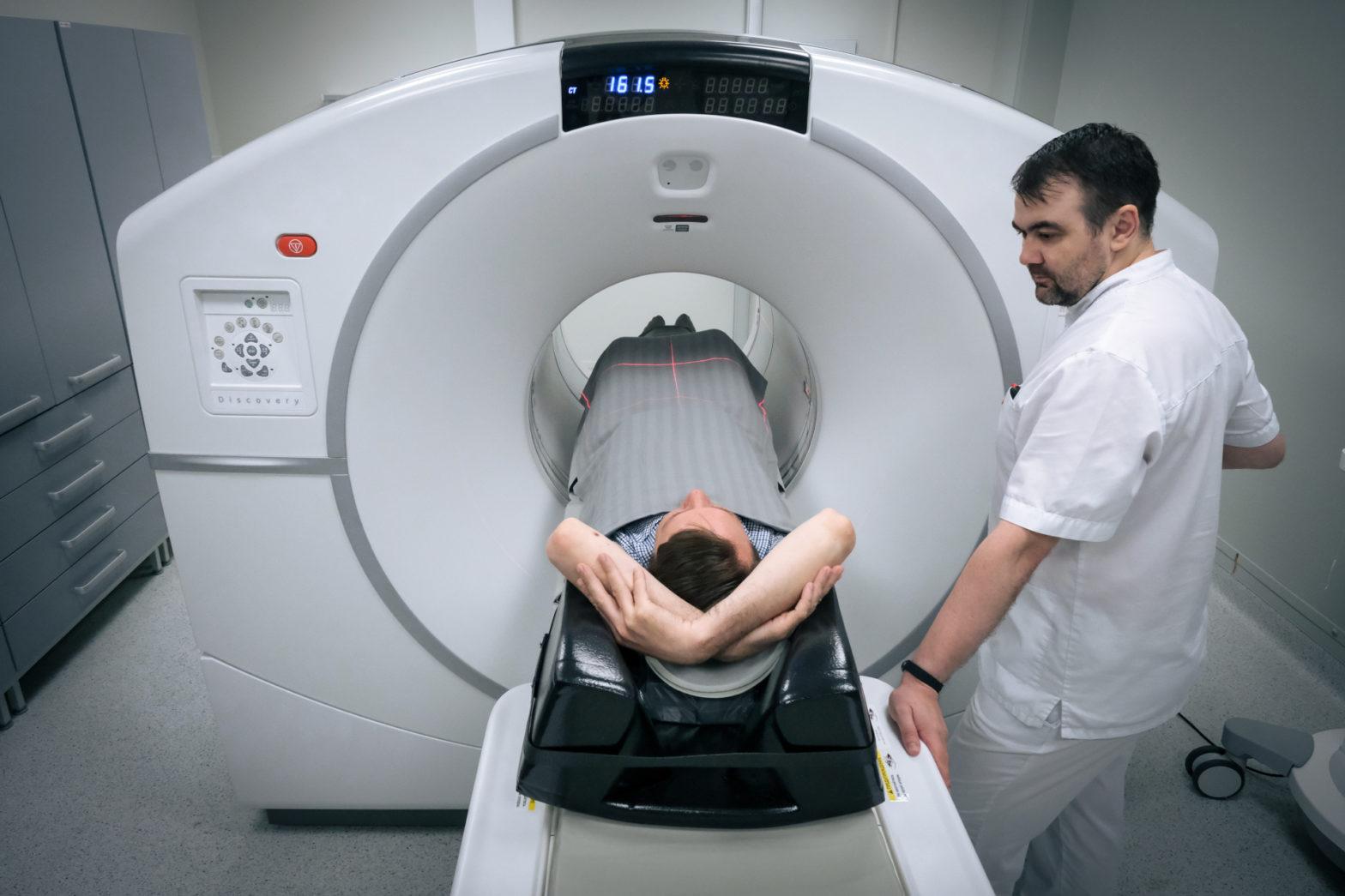
Department of Nuclear Medicine
Department of Nuclear Medicine of N. Lopatkin Scientific Research Institute of Urology and Interventional Radiology (SRIUIR) equipped with a state-of-the-art GE Discovery IQ 5r PET/CT scanner featuring highly sensitive detectors and a wide field of view, as well as a Siemens Evo Excel dual-head gamma camera. This setup allows for a wide range of studies to be performed with comfort for patients.
The Department has been established as part of the Federal Project ‘Fighting Cancer,’ which aims to ensure both accessibility and quality of medical care for cancer patients, while also introducing modern diagnostic and treatment methods into the routine practice of cancer services.
Considering the profile of the Institute, one of the priority tasks of the Department is conducting studies on patients with urological pathologies. Consequently, the majority of studies involve various renal scan techniques. Cancer patients can now undergo whole-body [18F]FDG PET/CT, which is one of the most sought-after techniques in nuclear medicine. [18F]FDG PET/CT allows for the assessment of tumor spread in a single study.
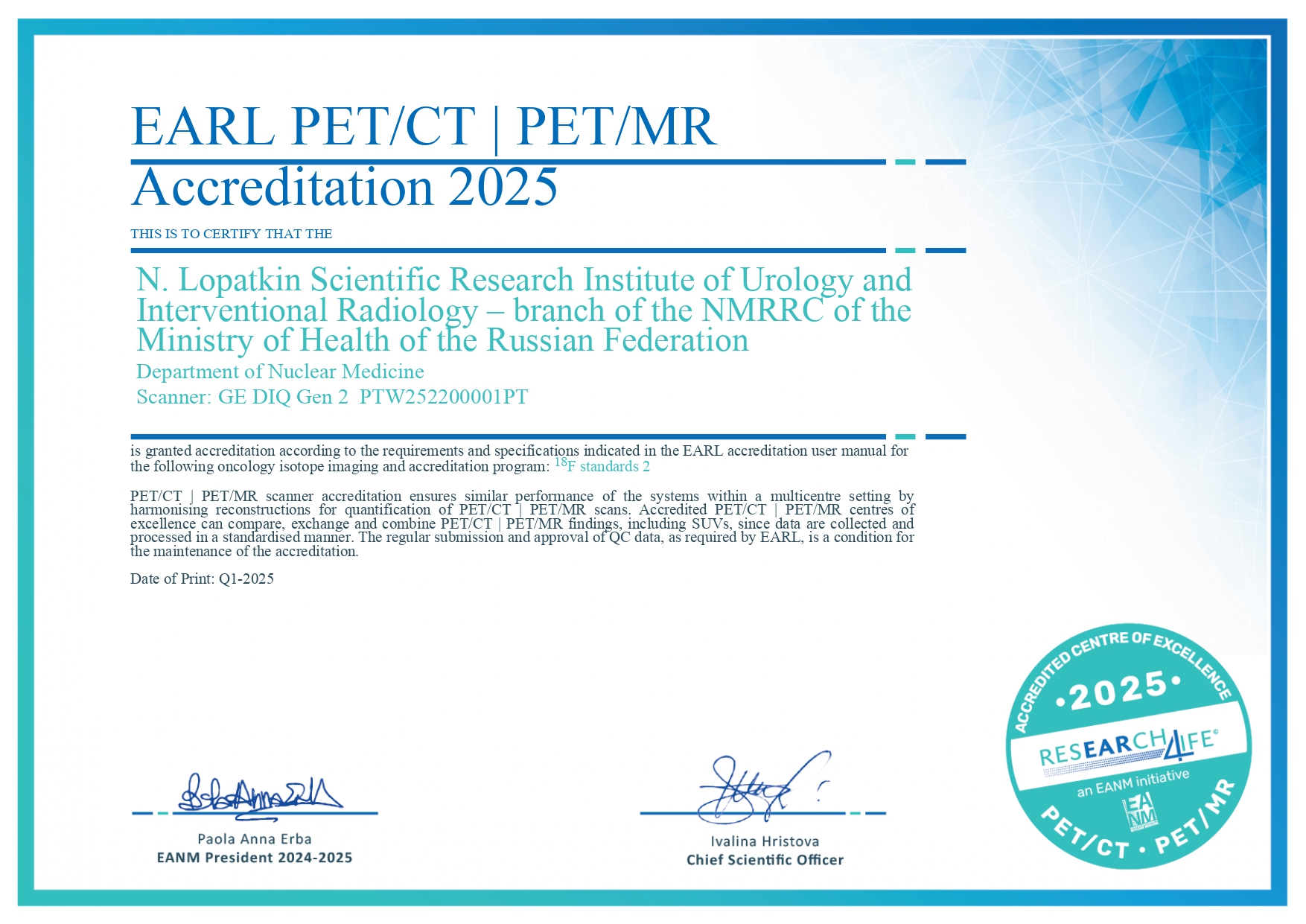
EARL Accreditation by the European Association of Nuclear Medicine (EANM)
SRIUIR’s Department of Nuclear Medicine became the second in the Russian Federation (after the MORI’s Department of Nuclear Medicine) to receive EARL accreditation, the purpose of which is to quantitative PET harmonization. This allows to reliably compare studies performed on different scanners, which is especially important when assessing treatment response in cancer patients, as diagnostic results significantly impact further treatment strategies and the prognosis of the disease.
How soon after treatment can PET/CT be performed?
[18F]FDG PET/CT should be performed not earlier then:
- 7 days after biopsy
- 21 day after chemotherapy (if the interval between administrations is shorter, schedule as close to the next one as possible)
- 2 months after surgery
- 3 months after radiotherapy
Contraindications for [18F]FDG PET/CT
While there are no absolute contraindications for [18F]FDG PET/CT, the following relative contraindications should be considered:
- Pregnancy (suspected or confirmed)
- Acute medical conditions
- Severe somatic disorders
- Infection or inflammation in acute phase
- Hyperglycemia (blood glucose level above 11 mmol/L)
- Conditions that may hinder the correct performance of the study (e.g., neuropsychiatric disorders, including claustrophobia, acute pain, etc.)
Recommendations for patients undergoing [18F]FDG PET-CT
Recommendations for 24 Hours before study:
- Minimize Physical Activity: Limit physical activity and avoid sports
- Avoid Hypothermia: Take precautions to prevent hypothermia
- Dietary Adjustments: Replace foods high in carbohydrates (such as potatoes, beets, carrots, tomatoes, corn, cereals, bakery, fruits, berries, juices, sauces, condiments, confectionery, and artificial sweeteners) with protein-rich options like meat, eggs, and green vegetables (including broccoli, asparagus, zucchini, and green beans), as well as cauliflower, mushrooms, cheese, and cottage cheese (without sugar and fruit additives)
- Avoid Certain Beverages: Do not consume alcoholic and sweet drinks, alcohol-containing medications, or milk. Non-carbonated water, coffee, and tea without sugar are allowed
- Avoid Steroid Medications: Refrain from taking steroid medications
Recommendations for the Day of study:
- Fasting: Refrain from taking any food (including parenteral nutrition) for 6 hours before the scheduled time of the study
- Avoid Chewing Gum and Lozenges: Do not use chewing gum or lozenges on the day of the scan
- Dress Comfortably: Come to the department in comfortable clothing, if possible, without metal elements or jewelry
Recommendations for Patients with Diabetes Mellitus undergoing [18F]FDG PET-CT
- Insulin Administration: Take the dose of insulin no later than 5 hours before [18F]FDG administration
- Oral Hypoglycemic Medications: Avoid taking oral hypoglycemic medications from the sulfonylurea and glinide groups 24 hours prior to [18F]FDG administration. It is advisable to stop taking biguanides as well; consult an endocrinologist for guidance on the temporary replacement of hypoglycemic medications
Recommendations for Breastfeeding Patients undergoing [18F]FDG PET-CT
- Avoid Direct Contact: Avoid direct contact with the infant for at least 12 hours after the administration of [18F]FDG
- Timing of Breastfeeding: If possible, breastfeed or pump breast milk as close as possible to the time of [18F]FDG administration
- Contrast Media Administration: The PET/CT scan is performed with intravenous administration of an iodine-containing contrast media if there are no contraindications
It is mandatory for all patients to inform the medical staff about any allergic reactions in their medical history, as well as any possible or confirmed pregnancy. Additionally, all patients undergoing PET/CT with intravenous administration of an iodine-containing contrast media must provide the results of serum creatinine analysis (no more than 1 month old).
How is [18F]FDG PET/CT performed?
The patient should arrive at the reception of the department at the scheduled time. After filling out the necessary documentation, the patient will be accompanied to the procedure room, where the technologist will perform the required measurements, place a peripheral venous catheter, and administer [18F]FDG.
After [18F]FDG administration, the patient should remain in a comfortable semi-reclining position in a special relaxation chair for approximately one hour. This time interval is required for radiopharmaceutical distribution and obtaining correct PET/CT results. During this period, it is forbidden to talk, listen to music, read, or use mobile devices.
Immediately before the PET/CT scan, the technologist will ask the patient to void the bladder and will position the patient on the scanner table.
The PET/CT scan lasts between 15 to 45 minutes, during which the patient should remain still and follow all instructions from the technologist.
If there are no contraindications, the patient will receive an iodine-containing contrast media at the end of the PET/CT scan.
Advice to patients after the study is completed
After the study, the patient may leave the department only if authorized by the medical staff.
During the next 24 hours after [18F]FDG administration, it is necessary to:
- Limit close contact with others, especially small children and pregnant women
- Increase fluid intake to 2 liters
- If possible, avoid salty foods, as this can lead to [18F]FDG retention in the body
If needed, a certificate confirming the administration of the radiopharmaceutical can be issued upon request on the day of the PET/CT scan.
The medical report will be provided no earlier than 48 hours after the PET/CT.
How can a patient undergo a study at the federal center?
The patient must provide the following documents:
- Passport or other ID and its scan copy
- Medical documentation regarding the referral diagnosis
- Data from previously conducted imaging, including reports (if available), such as CT, MRI, ultrasound, PET/CT, SPECT/CT, and scintigraphy, in electronic format (CD/DVD or USB drive) in DICOM format
It is possible to make an appointment by phone numbers of the contact center +7 (495) 150-11-22 or +7 (499) 110-40-67.


